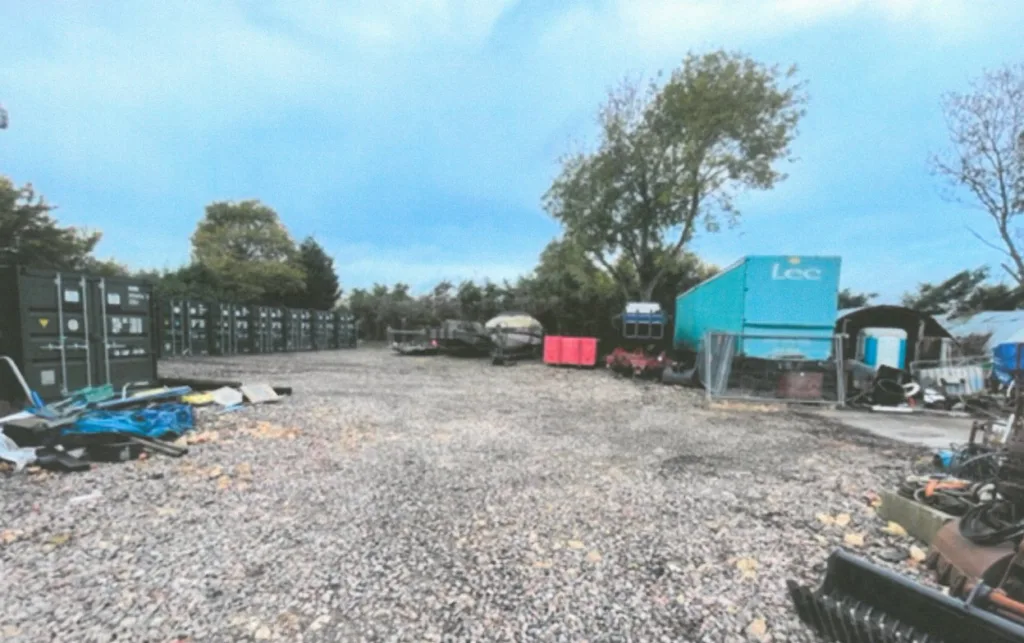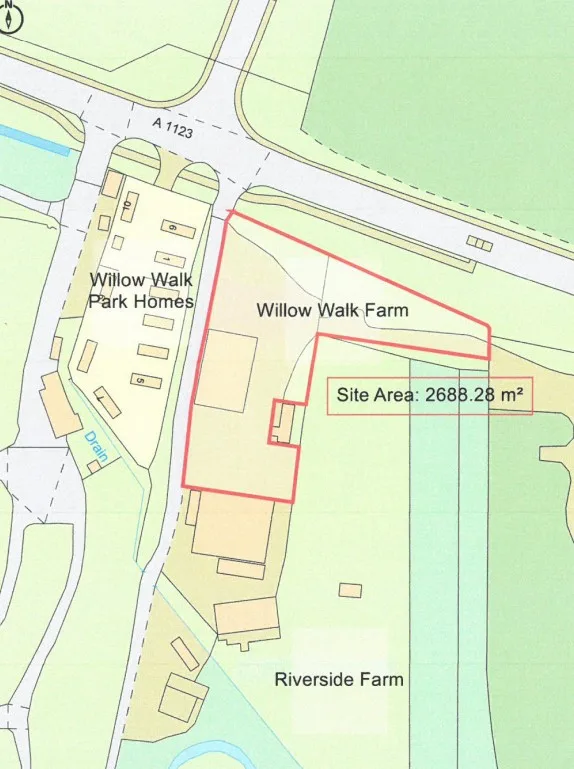A businessman has produced documents dating years to prove he is operating lawfully and not in breach of planning laws.
Daren Irvin has submitted a batch of paperwork to Huntingdonshire District Council to demonstrate how long his business has been established at Willow Walk Farm, Wyton, near Huntingdon.

Mr Irvin is applying for a lawful development certificate to show the business has been going for longer than 10 years and therefore immune from enforcement.
His application has been prepared on his behalf by Optimis Consulting Limited.
If successful, the certificate will show Mr Irvin has been using land at Willow Walk Farm for more than 10 years for storage and repair of commercial vehicles, marine engineering equipment and containers.
Optimis has told council planners they can “demonstrate that on the balance of probability the use of land is immune from enforcement action as a development without first obtaining planning consent”.
That means showing that the land has been used for the purposes stated for more than 10 years.
Optimis says the site is an established commercial site for open storage and repair of commercial vehicles, marine engineering equipment and containers.

Vehicle and marine equipment repairs and storage also take place within the building on site for which an associated certificate of lawful development has been made simultaneously with the application.
The site is accessed directly from Huntingdon Road and the access drive runs along the west side of the building and is a shared access with Willow Walk Farm.
The track leads down to the river bank at the Great Ouse at which there is a slip way and crane. Wyton Moorings is about 130m to the east of this slipway along the river bank.
The land subject the current application comprises a hardstanding surrounding an existing building on the site.
There is a mobile home with a permanent consent to the south east of the site boundary and there an old agricultural building to the south.
The land covers an area of approximately 2688 sqm “and is generally level and well screened” says Optimis.
Optimis says no enforcement action may be taken after the end of the period of four years beginning with the date on which the operations were substantially completed.
And in the case of any other breach of planning control, no enforcement action may be taken after the end of the period of ten years beginning with the date of the breach.
Optimis says onus of proof to establish the case is firmly on the applicant in lawful development certificate cases.
They say the courts have held that the relevant test of the evidence of such matters is “the balance of probability”.
Optimis say if the council has no evidence of their own, or from others, to contradict or otherwise make the applicant’s version of events less than probable, there is no good reason to refuse the application.
This presumes “the applicant’s evidence alone is sufficiently precise and unambiguous to justify the grant of a certificate on the ‘balance of probability’”.
Optimis says they have shown the council that use of the land for the storage and repair of vehicles and marine engineering equipment together with the siting of containers has been established on the land indicated for a period in excess of 10 years.
Included in evidence are title deeds, Companies House notices showing trading, payment of commercial rates and Google Earth evidence from 2008.
“The use is therefore established in law and no enforcement action can be taken against the breech of planning control,” concludes the submission to the council.
“On the basis of the evidence that has been presented by the applicant and other evidence that is available, and in the absence of any other evidence to contradict or otherwise make the applicant’s version of events less than probable, it is considered that, on the balance of probability that the lawful development certificate should be granted.”
























